The September 2009 issue of Lonely Planet magazine dubbed Ghent as “Europe’s best-kept secret.” Even though the number of visitors to this Belgian city has doubled since then, it remains a peaceful destination, especially compared to other Flanders destinations like Bruges, which is crowded with tourists year-round.
The many attractions of this Flemish city make a part of me hesitant to share why it’s worth visiting Ghent. I’d love to return as often as possible and find it much the same… but that wouldn’t be fair to Ghent or you.
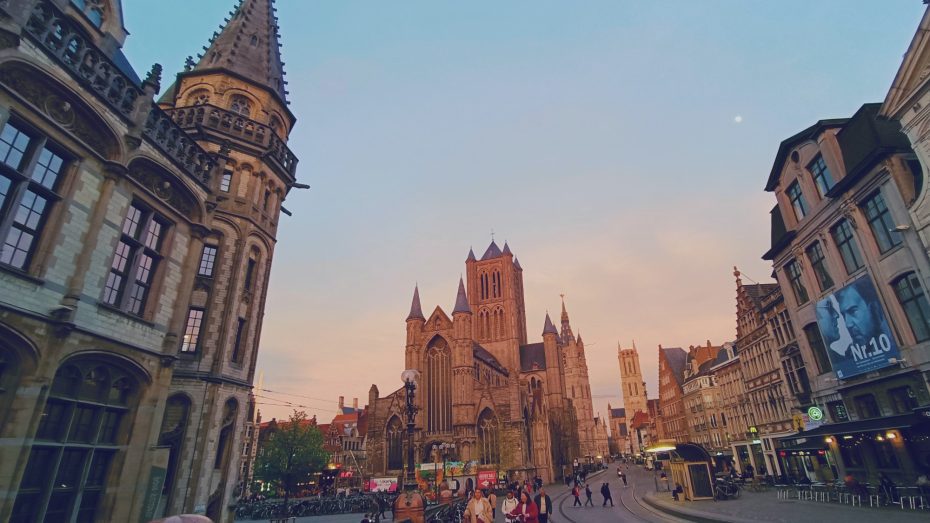
Ghent blends a touch of Bruges’ medieval charm with the cool factor of other European cities like Berlin and Brussels, all while boasting a lively cultural scene. In Ghent, you can explore museums and ancient churches, sample beer and chocolate, or cycle through its scenic canals.
This article will tell you what to see and do in Ghent to make the most of your stay, no matter how much time you have. In addition to monuments and attractions, we’ll also include some tips and lesser-known spots you might not find in traditional travel guides.
Before I start the list of attractions to see in Ghent, I will give you the best tip for visiting the city and saving money: Get the CityCard Gent. Depending on the length of your stay in the city, you can choose the 48 or 72-hour version. This card allows free access to almost all of the city’s cultural sites and local public transportation.
Things to See and Do in Ghent, Belgium
1. Marvel at the Worship of the Mystic Lamb
One of the most visited attractions in Ghent is the Adoration of the Mystic Lamb, a 15th-century Gothic-style painting that can be visited in the Cathedral of St. Bavo.
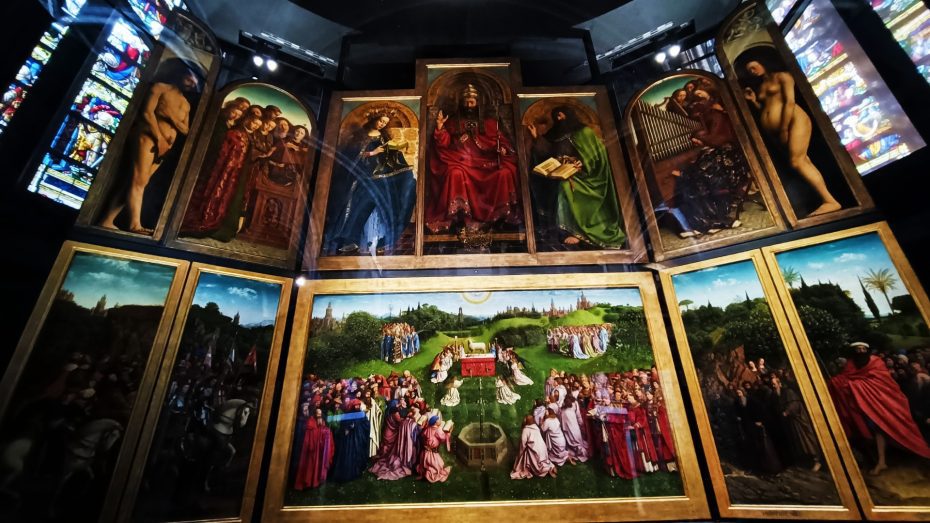
Also known as the Ghent Altarpiece, this twelve-panel oil polyptych symbolizes the sacrifice of Christ, represented by the lamb, to grant salvation to his followers. Although it’s not entirely clear where one artist’s work ends and the other’s begins, this piece of Flemish art was started by Hubert van Eyck in 1420 and completed by his brother Jan van Eyck in 1432 after Hubert’s death.
But what makes the Mystic Lamb so special? For one thing, it represents the transition from traditional medieval art to a more precise depiction of nature and humanity, a hallmark of the Renaissance. It’s no wonder the Ghent Altarpiece is considered a masterpiece of European art and is known as the first great oil painting.
However, many find the Ghent Polyptych’s complex history most intriguing. Over the years since its completion, several panels of the Mystic Lamb have been stolen. For instance, in 1800, Napoleon’s troops seized the painting after a war, displayed its central panels in the Louvre, and sold off the rest to collectors.
More than a century later, Hitler also set his sights on the Ghent Altarpiece, believing it concealed a map that would lead him to the Arma Christi or Instruments of Christ’s Passion, including the Holy Grail, which he thought would grant him superhuman powers. During World War II, Nazi soldiers stole the Mystic Lamb and hid it in Altaussee Mine, a salt mine that served as storage for art looted by the German army throughout Europe.
At the end of World War II, the Monuments Men, a group of soldiers specializing in recovering stolen art and who inspired the movie of the same name, successfully rescued the artwork.

Today, one of the lower panels of the Mystic Lamb remains missing since it was last seen in 1934, earning it another record: the most stolen artwork in history.
Whatever the reason, the Adoration of the Mystic Lamb is a must-see in Ghent. Additionally, St. Bavo’s Cathedral has employed technology in a rather uncommon way for churches, allowing you to travel through time on an Augmented Reality (AR) tour where you’ll learn the entire history of the polyptych and even step into the Van Eyck workshop.
Personal tip: Although you can choose between a 40-minute and 60-minute tour, the 40-minute tour is more than enough and will leave you with more time to explore the center of Ghent, grab a bite to eat, or visit other attractions.
- Address: Sint-Baafsplein, 9000
- Opening times: Mon – Fri 8:30 a.m. – 5:00 p.m
- Fares: €€
- Website: sintbaafskathedraal.be
- Languages: English, Dutch, Spanish, French and others
- Tours and activities: Book now
- Recommended nearby hotel: ibis Gent Centrum St. Baafs Kathedraal
2. Touring St. Bavo’s Cathedral
St. Bavo’s Cathedral is an attraction in itself, beyond the famous Mystic Lamb.
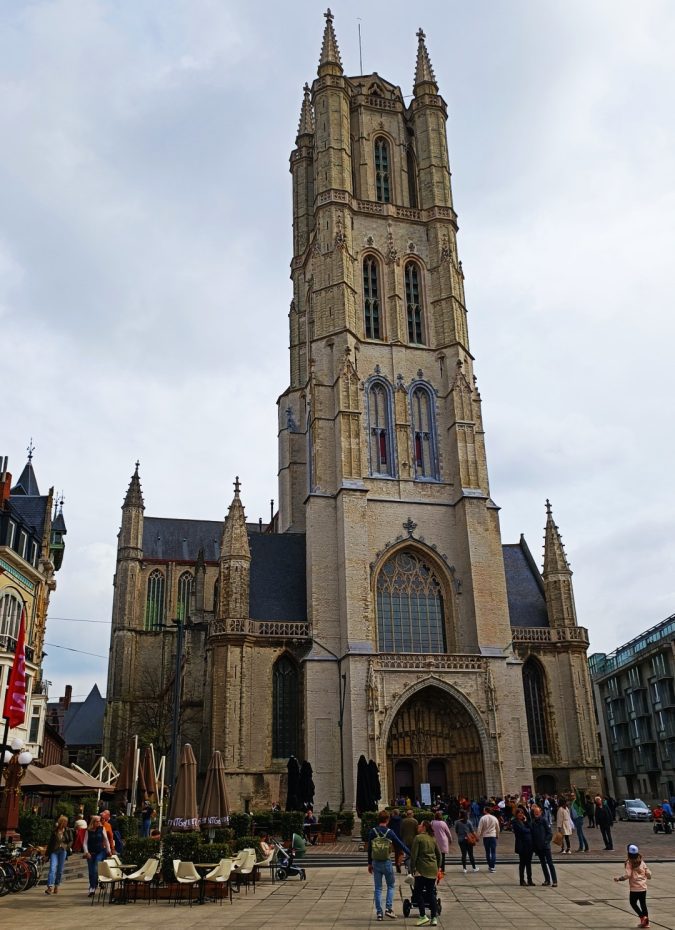
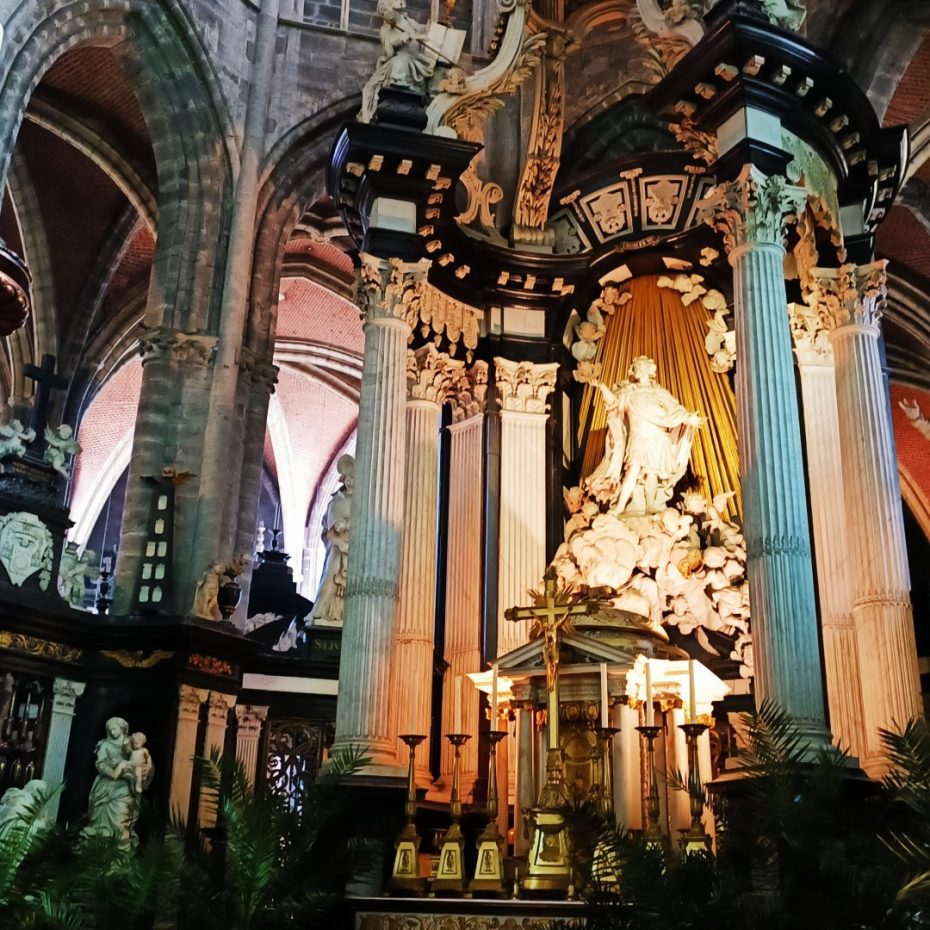
This church was built in the mid-twelfth century in a Romanesque style that can still be seen in details, such as its crypt with murals. However, thanks to the power and wealth of Ghent in the Middle Ages, the cathedral was reformed between the sixteenth and seventeenth centuries to give it the Gothic appearance it has today.
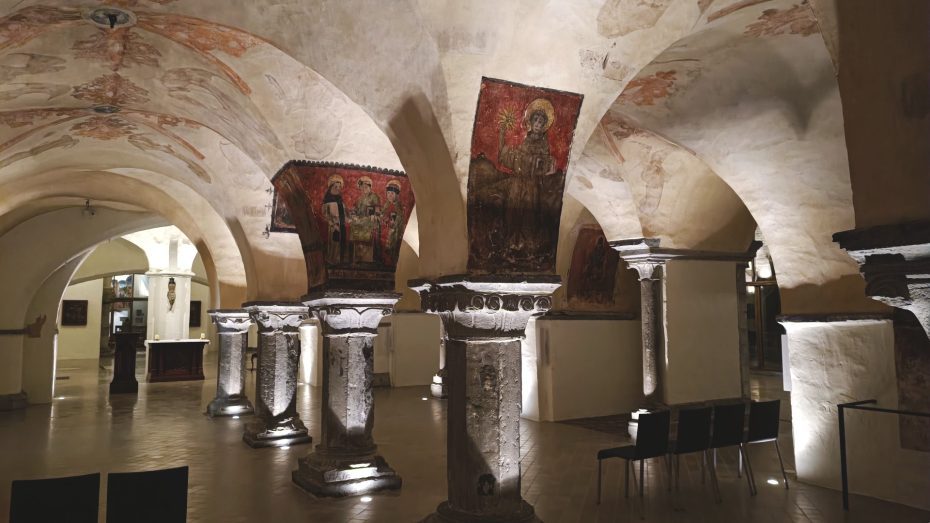
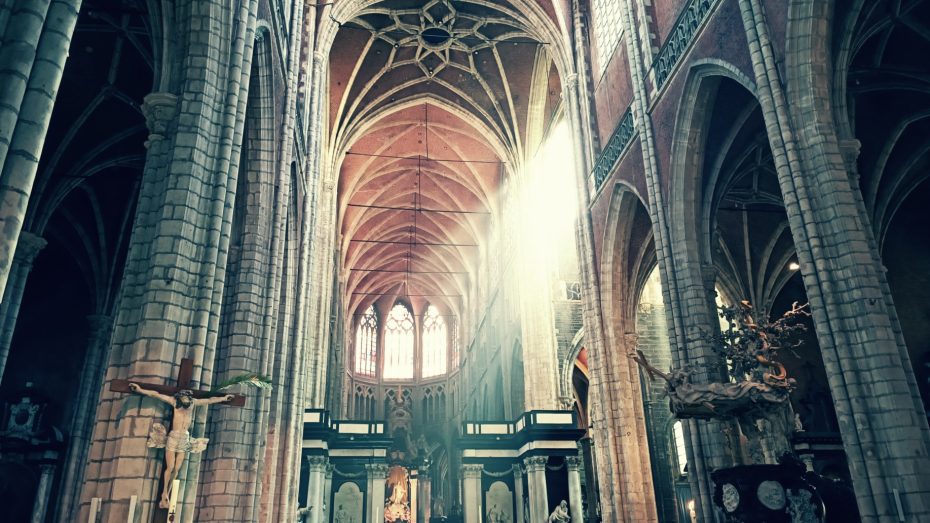
St. Bavo’s Cathedral houses several other masterpieces beyond the Van Eyck brothers’ polyptych. Here, you can marvel at “The Resurrection of Lazarus,” a painting by Otto van Veen from 1608, as well as “St. Bavo Enters the Convent of Ghent” by Peter Paul Rubens, one of Flanders’ most renowned artists who, during his time, was a student of van Veen.
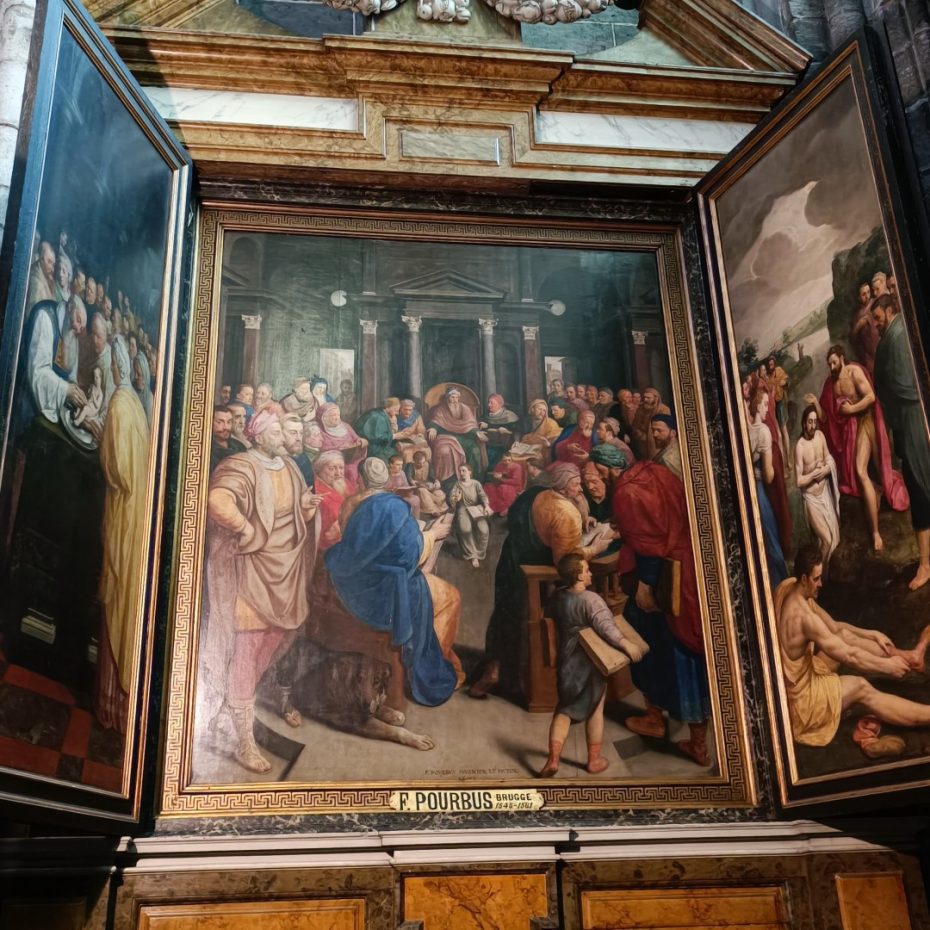
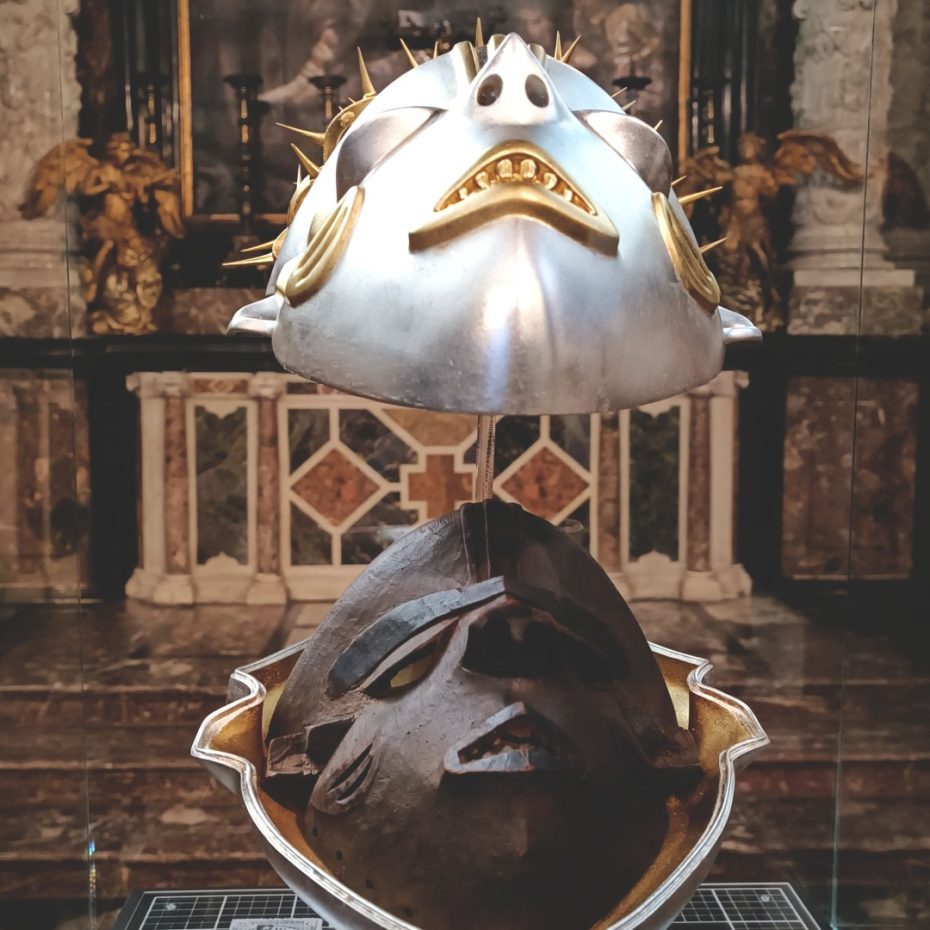
Esta impresionante iglesia está abierta durante todo el año, excepto el primero de enero, y se encuentra en pleno corazón de Gante.
- Address: Sint-Baafsplein, 9000
- Opening times: Mon – Fri 8:30 a.m. – 5:00 p.m.
- Fares: €€
- Website: sintbaafskathedraal.be
- Languages: English, French, Spanish, Dutch and others
- Tours and activities: Book now
- Recommended nearby hotel: ibis Gent Centrum St. Baafs Kathedraal
3. Climbing the Ghent Belfry
If you want to have the best views of Ghent, a good idea is to climb the bell tower, which was declared a UNESCO World Heritage Site in 2005.
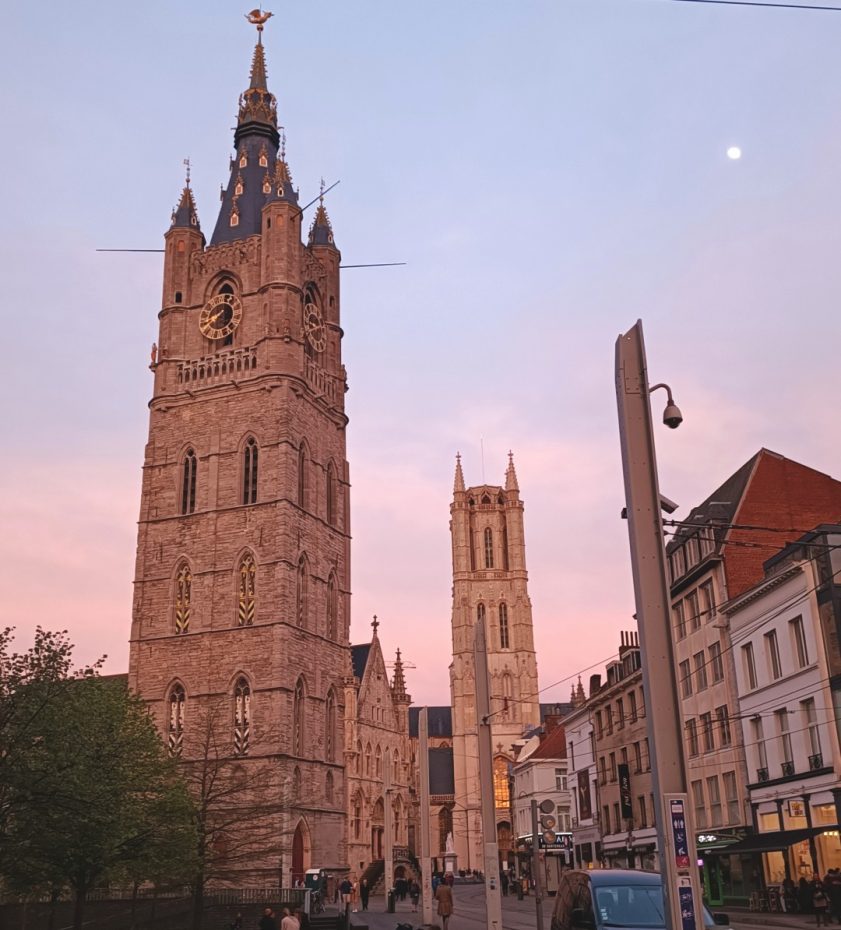
The Belfry, also known as the Belfort or Belfry, stands at an impressive 91 meters (298 feet), making it the tallest in Belgium. It is centrally located in Ghent. You can view St. Bavo’s Cathedral and St. Nicholas’ Church from its lookout.
The construction of this tower, which is the most famous among Ghent’s three medieval towers and a true symbol of the city, began in 1313 with several purposes.
The belfry safeguarded Ghent’s municipal privileges within a chest in a secret room.
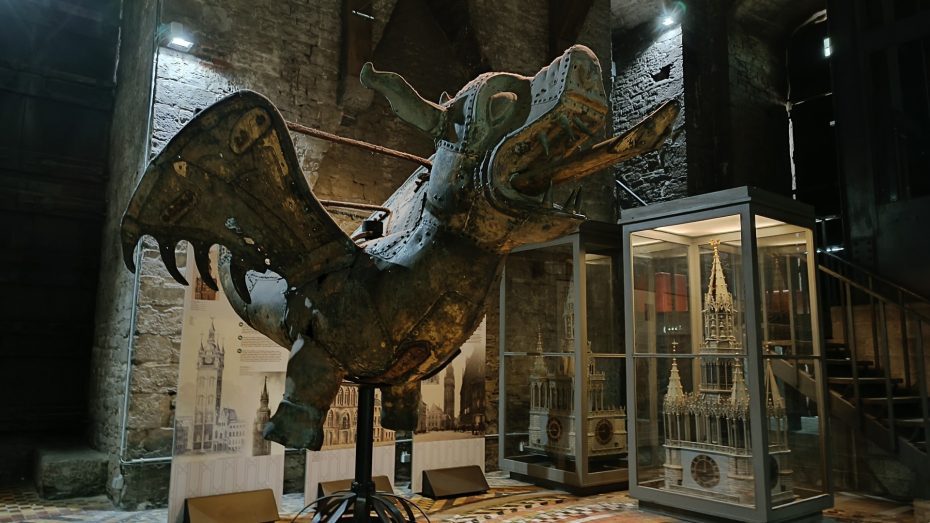
In fact, the fire-breathing dragon sculpture crowning the tower was installed as a symbol of protection over those privileges.
Another function of the bell tower was to serve as an observation tower, replacing the church tower of St. Nicholas in 1442. From here, citizens could be alerted to various dangers such as fires, for example, by ringing the bells.
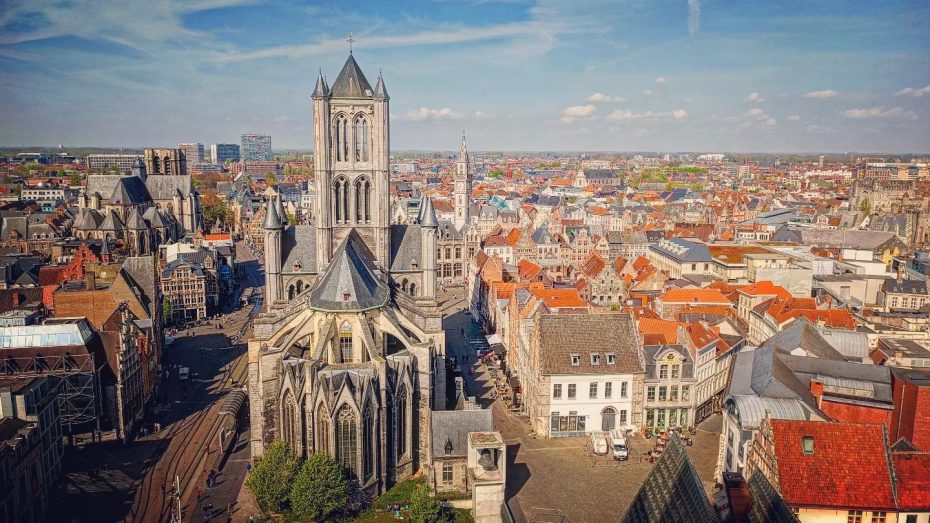
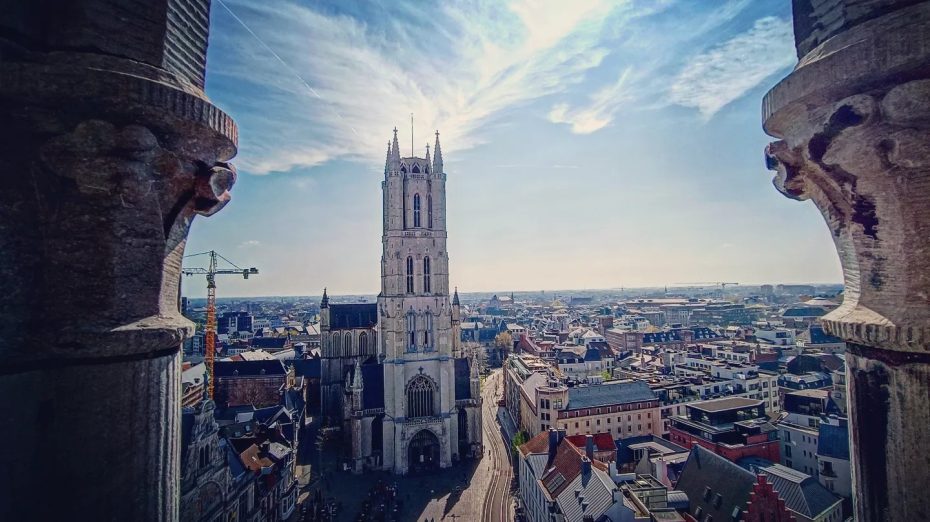
The best part? If, like me, you don’t consider yourself an athletic person, you can take the elevator up, enjoy the views, and take good photos without much effort. Just keep in mind that you can only reach the top two floors of the bell tower by stairs.
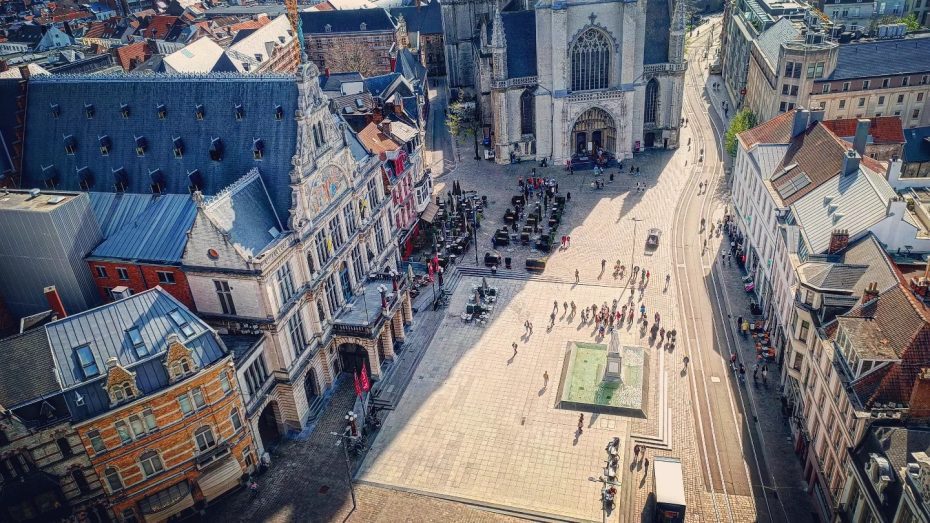
- Address: Sint-Baafsplein, 9000
- Opening times: 10:00 am – 5:30 pm
- Fares: €
- Website: www.belfortgent.be
- Tickets: Book now
- Recommended nearby hotel: STUDIO61
4. Street Art Walking or Biking Tour
One of the things that surprised me most about Ghent is the amount of graffiti and murals that adorn its streets and, above all, the quality of the urban art that covers many of its spaces.
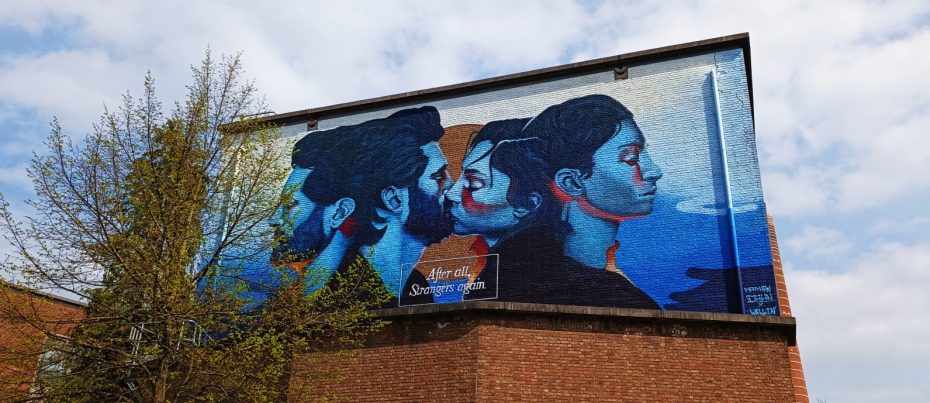
While in many parts of the world, street art is still associated with vandalism rather than a form of expression loaded with political messages, in Ghent, there’s even a “graffiti street” (Graffitistraatje) where anyone, regardless of experience, can pick up a spray can and leave their mark. Yes, even me.
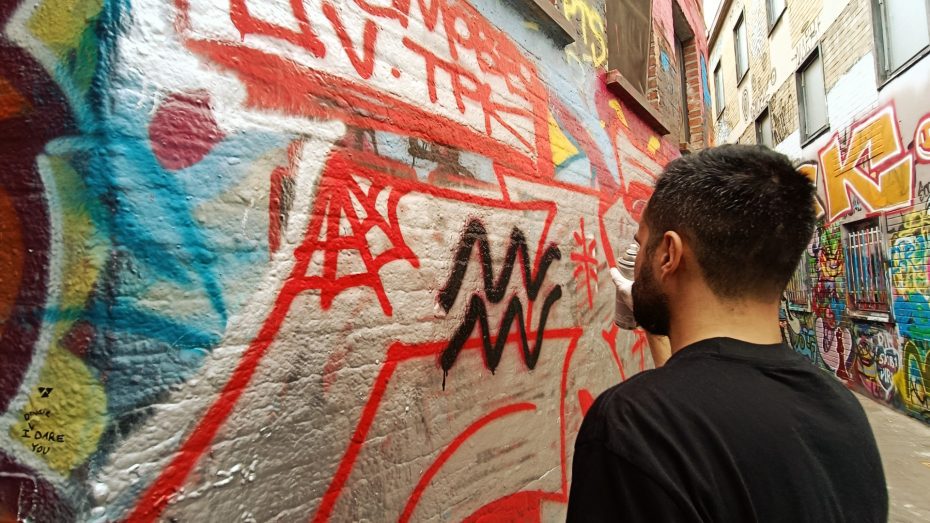
During your walk along this street, which, by the way, is very close to the center of Ghent, you may see some of the most important graffiti artists in Belgium and Europe working on a mural, as large spaces are usually reserved for them. Visitors, on the other hand, can use this corner to let their imagination run wild, always bearing in mind the changing nature of this area of the city and that our works will, therefore, be quite ephemeral.
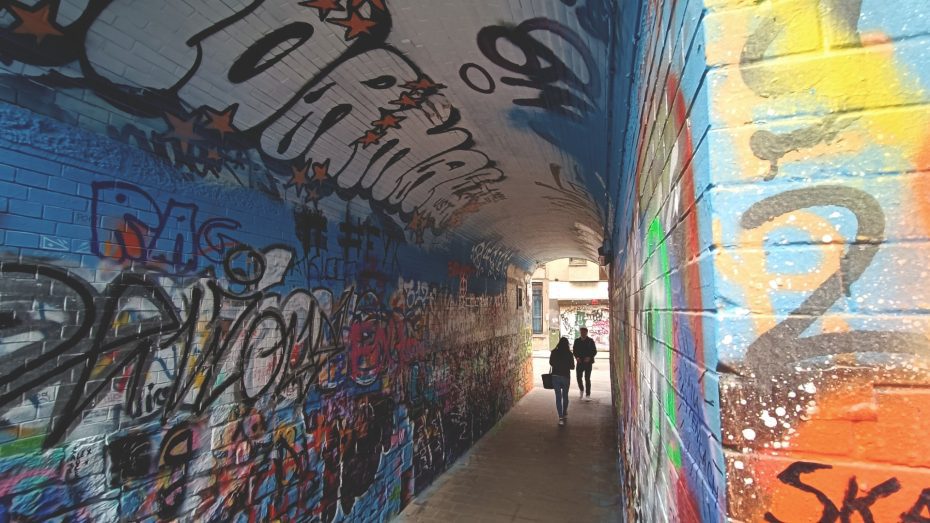
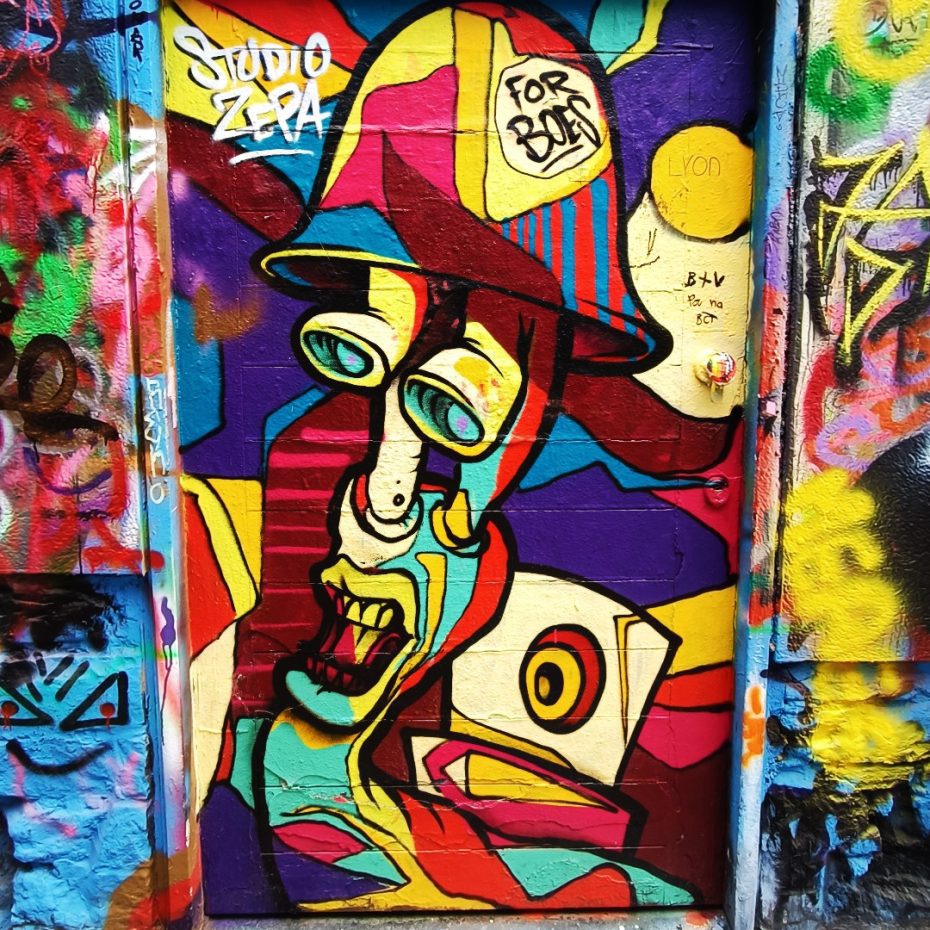
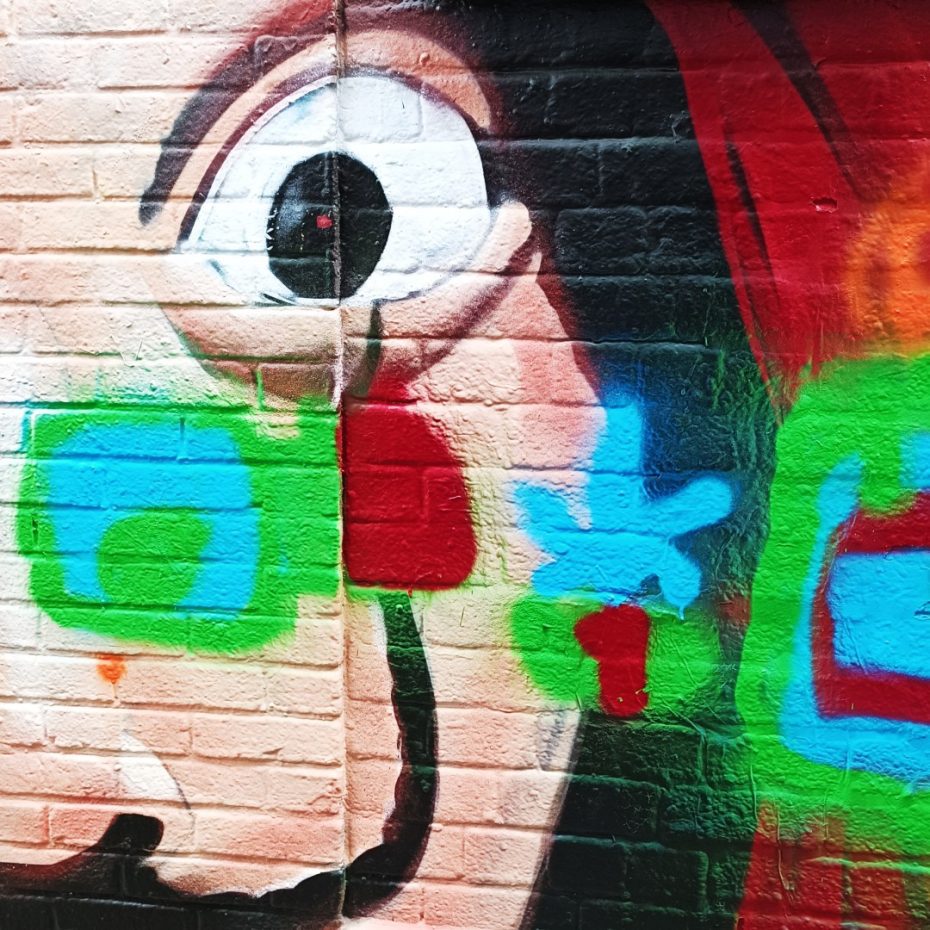
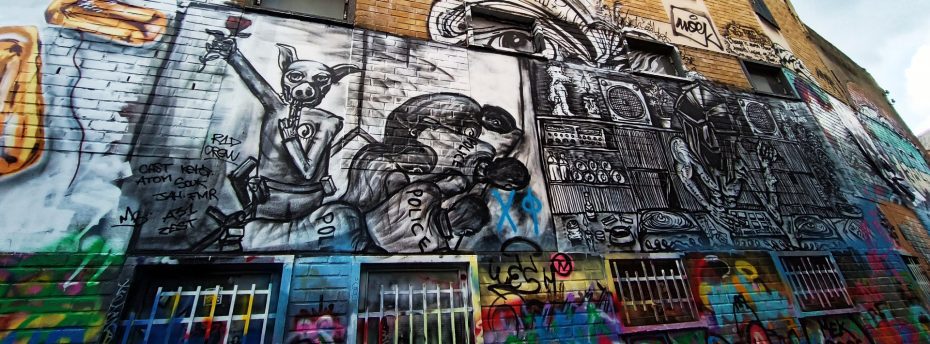
The city’s urban art isn’t just confined to the street of graffiti; you’ll find stunning murals all over downtown and other areas. It’s a good idea to book a street art tour in Ghent, either by bike or on foot.
In addition to Graffitistraatje, the urban art tours of Ghent include a walk through the entire city and harbor to appreciate its most famous murals.
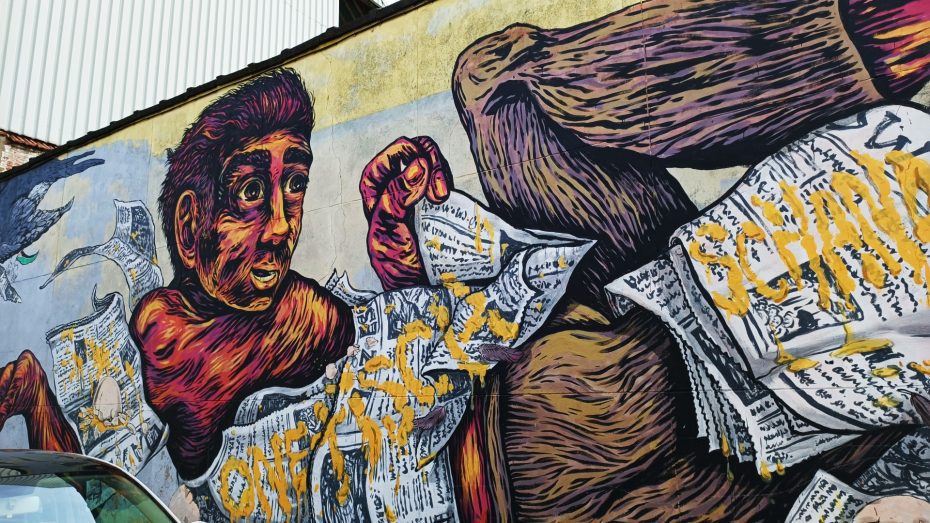
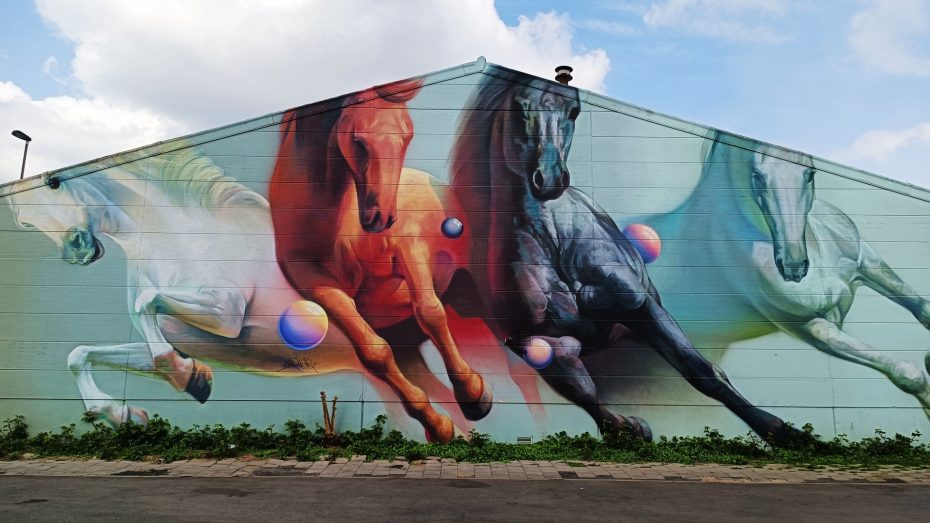
A personal tip: if you decide to do the tour by bike, don’t try to learn the day before the tour, as I did.
Although Ghent is a super friendly city and very well signposted for cyclists, you will save time (and scares) for the guide if you know how to use a bike or just pay for a walking tour.
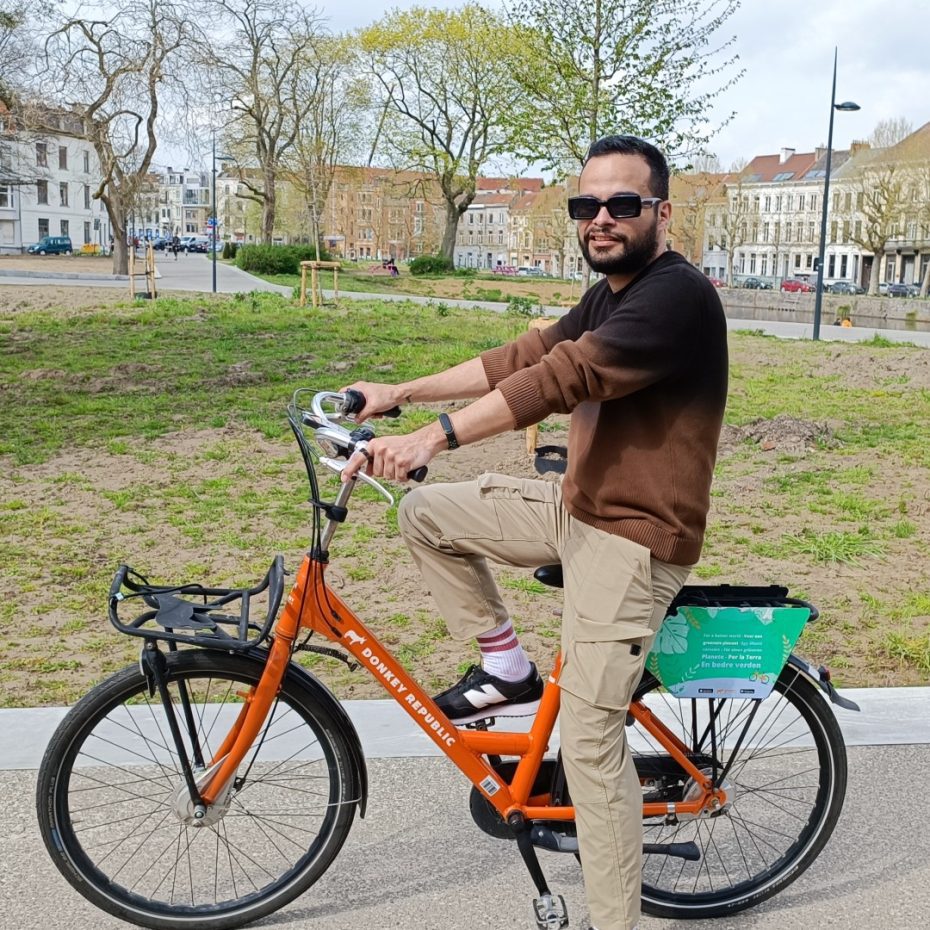
- Address: Werregarenstraat, 9000
- Opening times: All-day
- Fares: free
- Tickets: Book now
- Recommended nearby hotel: NH Gent Belfort
5. Strolling Along the Canals
As I mentioned earlier, Ghent has some beautiful canals that could rival those of Amsterdam, even though they may not be as famous as the ones in Bruges.
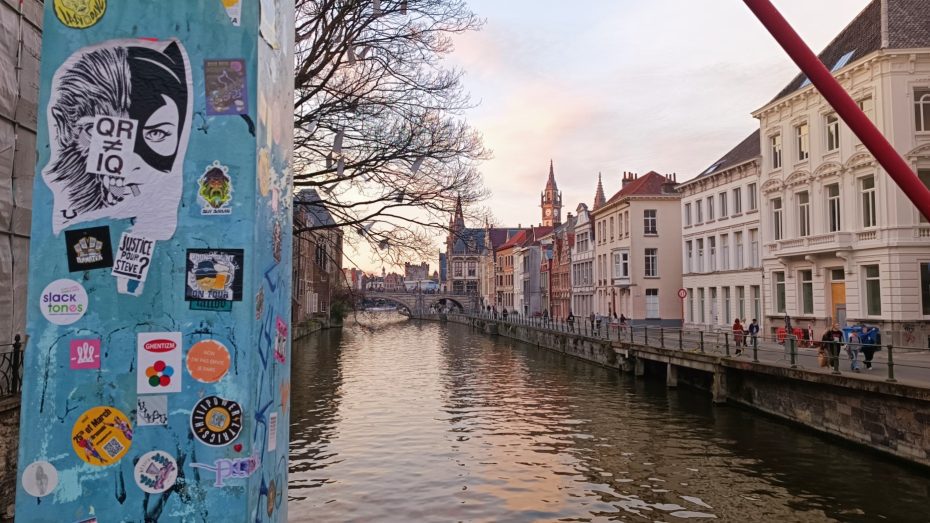
Ghent’s location at the confluence of the Scheldt River and the Lys River means the city has some truly scenic canals that you won’t get tired of photographing—believe me, I speak from experience.
The canals of Ghent are centrally located in the city, so whether you stay in the area or not, you’ll come across them multiple times during your stay. Moreover, here, you’ll find hotels across different categories, Belgian beer bars with terraces, and a variety of restaurants, including several specializing in mussels.
If that wasn’t enough, it’s also possible to explore Ghent’s canals by boat, passing city icons like the Castle of the Counts (Gravensteen).
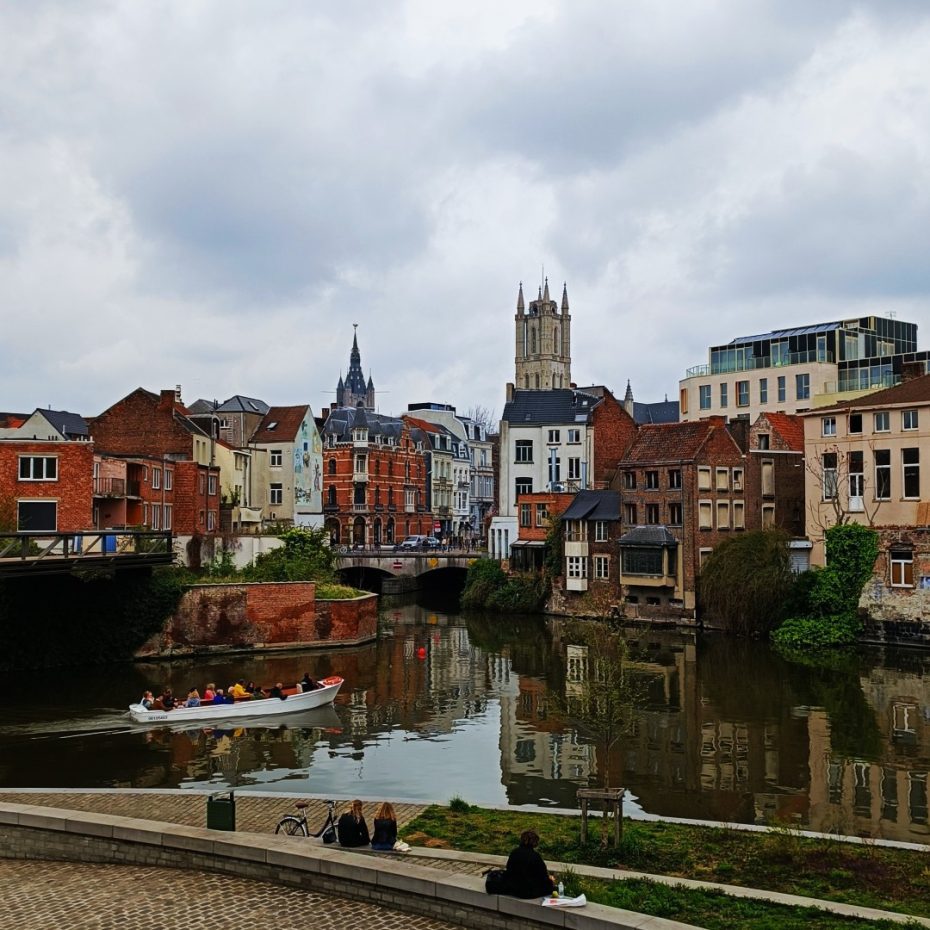
During this walk, it is also possible to stop at Ghent’s two old docks, the Korenlei (granary dock) and the Graslei (herbalist’s dock), which were once among the most important in Europe.
And if I haven’t given you enough reasons to visit Ghent’s canals, the spectacular sunset views from here will surely convince you.
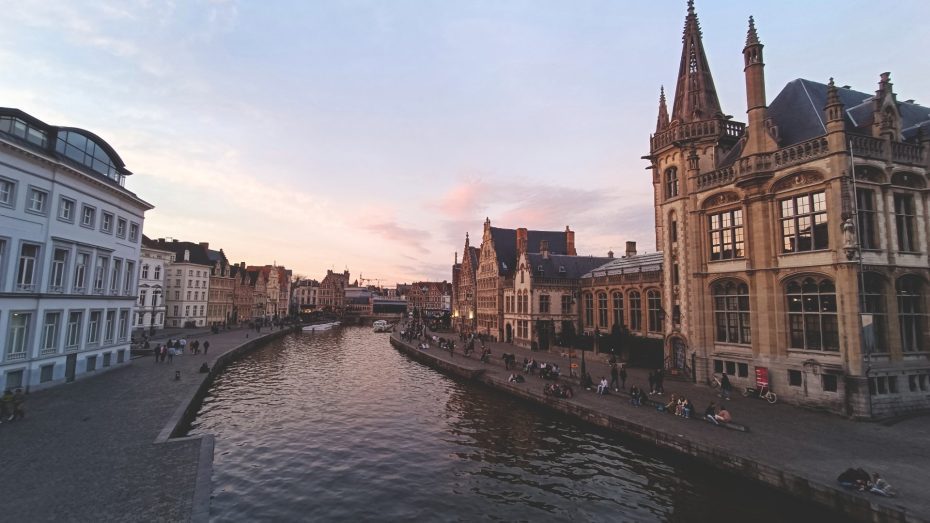
- Address: Central Ghent
- Opening times: 24 h
- Fares: Free- €€
- Tickets: Book now
- Recommended nearby hotel: 1898 The Post
6. Visit Gravensteen Castle
Although I’ve mentioned it before as one of the attractions you can see from the canals, the Gravensteen, or Castle of the Counts of Ghent, is even more impressive on the inside.
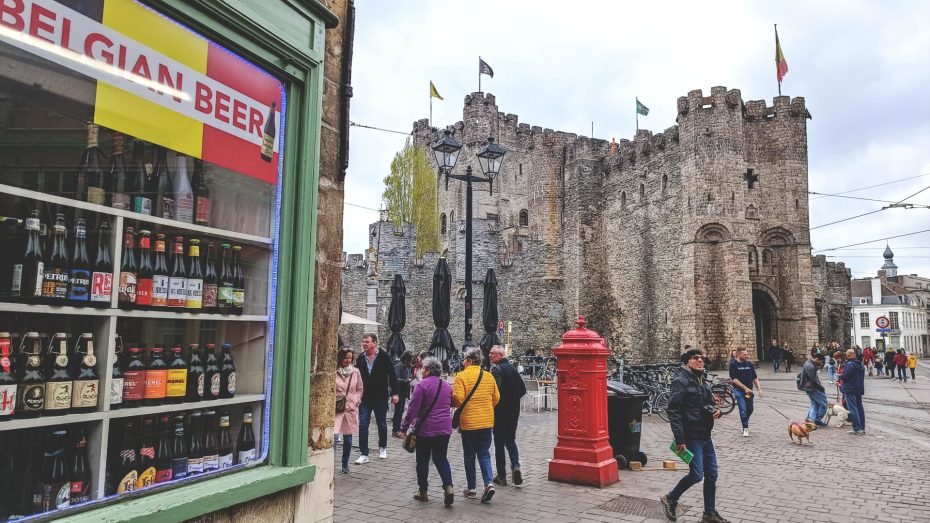
This medieval fortress, built in 1180, served as the official residence of the Counts of Ghent until 1353. Since then, Gravensteen has functioned as a prison, courthouse, cotton/textile factory, and mint – all in no particular order.
Later on, between 1893 and 1903, Gravensteen underwent restoration and was transformed into a museum that remains open to the public today.
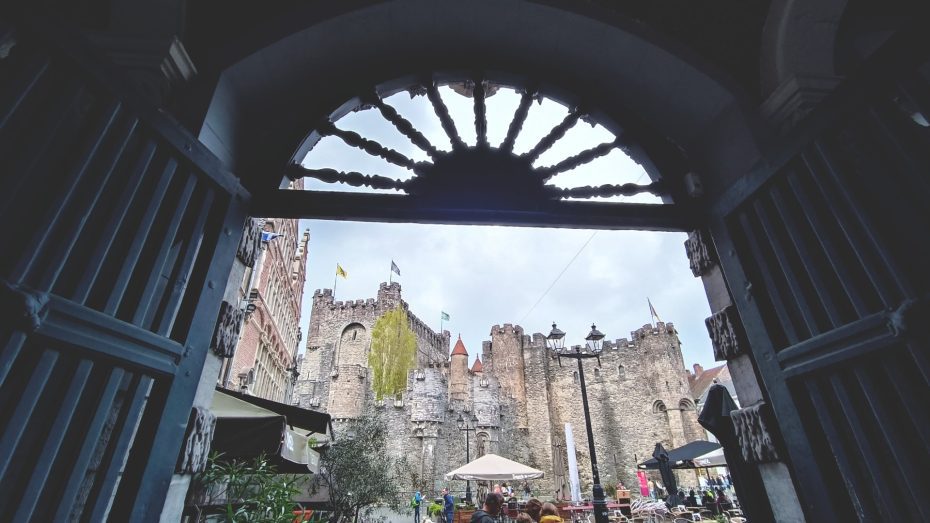
A visit to the Castle of the Counts, where you can explore the stables, the wall, the gatehouse, and the keep, will help you better imagine Ghent’s political, social, and historical landscape during the medieval period.
Alternatively, you can choose a comedy-infused tour if you’re tired of traditional cultural tours.
- Address: Sint-Veerleplein 11, 9000
- Opening times: 10:00 am – 6:00 pm
- Fares: €€
- Tickets: Book now
- Recommended nearby hotel: Hotel Gravensteen
7. Visiting the Church of Saint Nicholas
The Church of St. Nicholas has one of the most beautiful facades in Ghent and is located near both the Cathedral of St. Bavo and the bell tower.

This building is one of the most iconic Gothic-style structures in the city, featuring a central observation tower that completes the three towers for which Ghent is renowned.
While the interior isn’t as dazzling as Saint Bavo’s Cathedral, the exterior of Saint Nicholas’ Church is something you cannot miss during your visit. Given its central location, you’ll pass by it anyway. The church stands approximately 72 meters (236 feet) tall, lending a majestic presence to the cityscape.
- Address: Cataloniëstraat, 9000
- Opening times: Tues – Sun 10:00 a.m. – 5:00 p.m., Mon 2:00 p.m. – 5:00 p.m.
- Fares: Free
- Tickets: Book now
- Recommended nearby hotel: Novotel Gent Centrum
8. Spending Time at the Vrijdagmarkt (Friday Market)
The Vrijdagmarkt is an emblem of Ghent that can not be missed in any travel guide to the city, and this will be no exception.
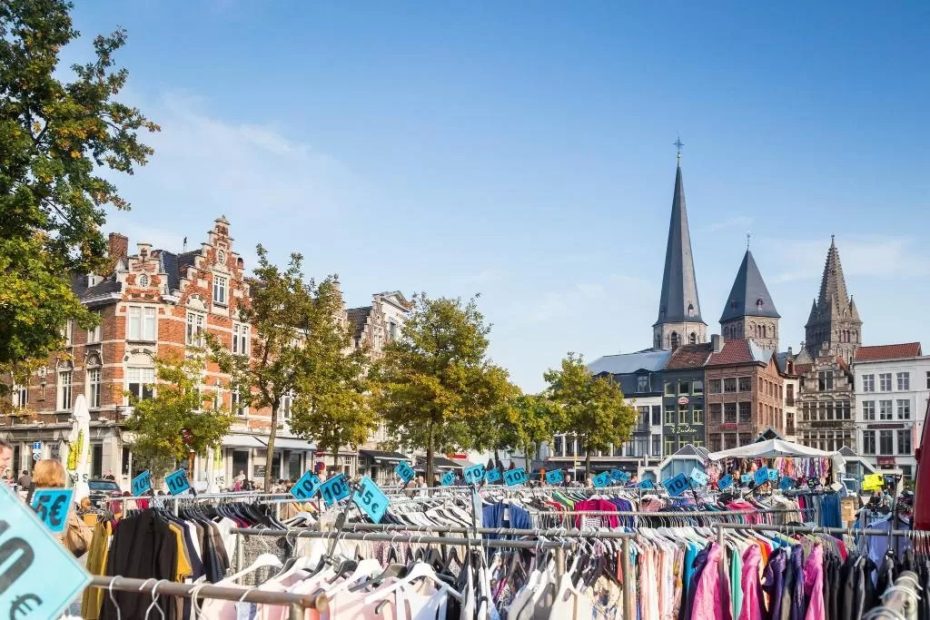
The symbol of Vrijdagmarkt is a statue of Jacob van Artevelde, a political leader who managed to get Ghent and the rest of Flanders to ally with England during the Hundred Years’ War. This alliance aimed to protect the city from English attacks and break the Count of Ghent’s agreement with France.
Situated right in the center, Vrijdagmarkt (which translates to “Friday Market“) is not only the largest square in the city but also the oldest. In fact, Ghent’s market has been held here since 1199, and as you might guess, it takes place every Friday morning.
Not spending a Friday in Ghent? Don’t worry, this area is very charming and lively all week long. Around the Vrijdagmarkt, you will find plenty of bars, restaurants, and accommodations.
- Address: Vrijdagmarkt, 9000
- Opening times: Friday 09:00 am – 01:00 pm (for the market)
- Fares: Free
- Recommended nearby hotel: Hotel Harmony
9. Ghent City Hall
If you like architecture, you will find interesting the Ghent City Hall, a building that stands out for having two very different facades.
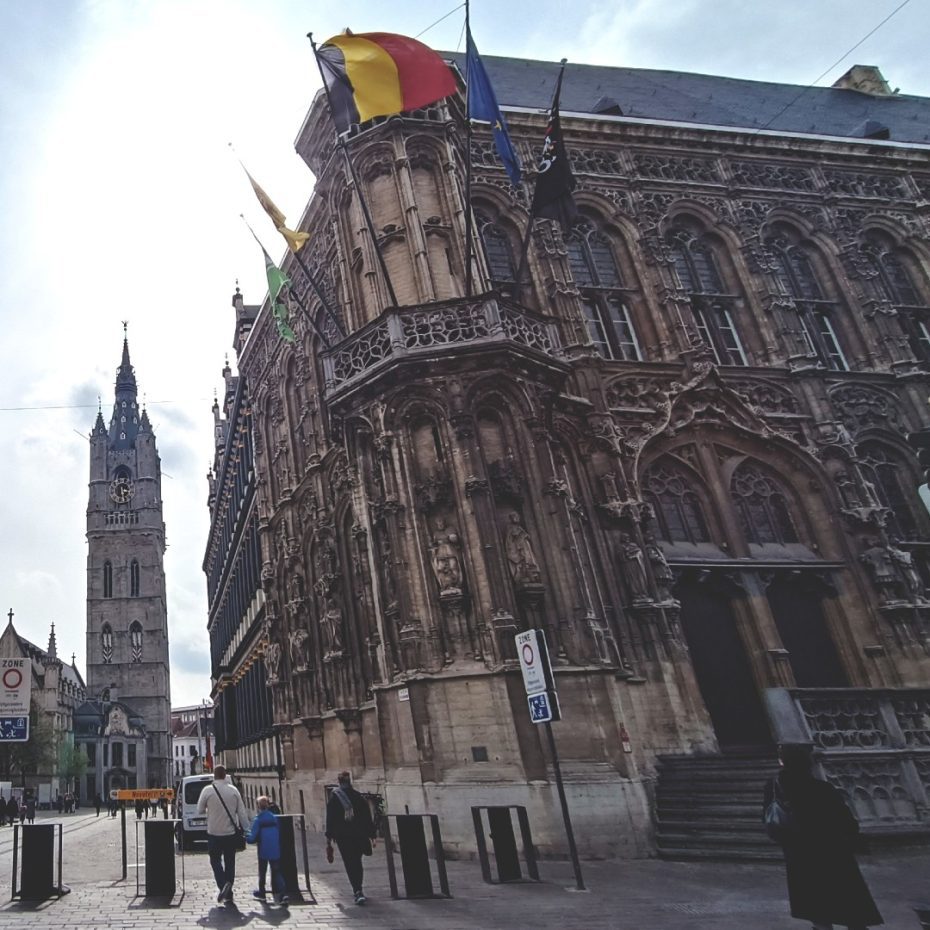
On one side, facing Botermarkt, you can admire a Renaissance style, while on the side of the town hall that faces Hoogpoort, you’ll encounter late Gothic architecture.
In addition to its administrative importance, this imposing building also stands out for its artistic and cultural contributions.
10. Tasting Belgian Chocolate
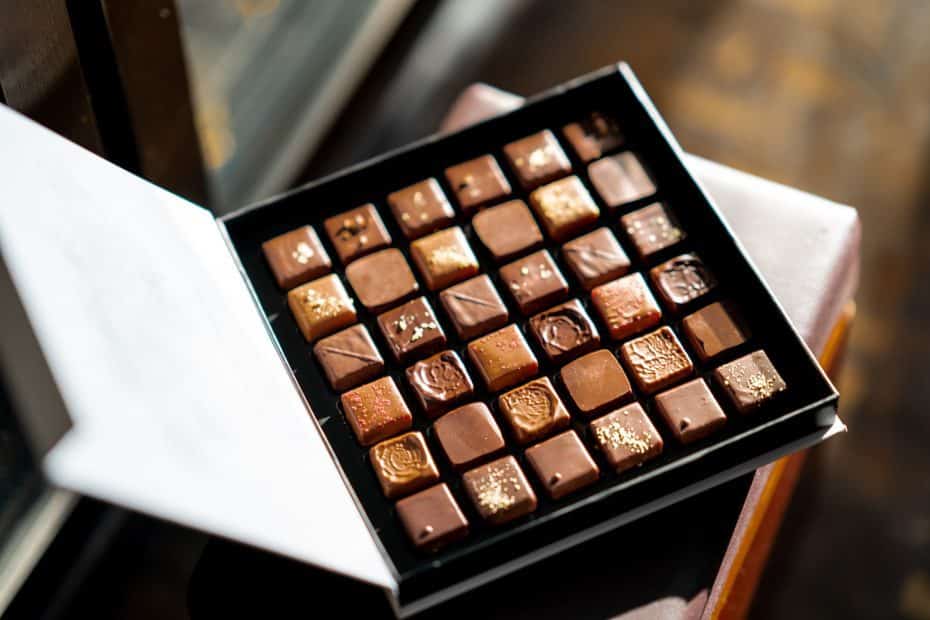
Belgian chocolate is known as one of the best in the world, and, of course, in Ghent, you will also be able to taste many of its varieties.
Whether you prefer dark, white, milk, fruit, or nuts, to name just a few, in the city, you will find chocolate shops that offer tours to familiarize you with the entire process, from the extraction of cocoa to the creation of the bars and chocolates. The best part is that you can taste different types of chocolate at the end of the tour.
If you do not have enough time for a tour, the center of Ghent has many specialized chocolate stores where you can ask for samples before making a purchase.
Believe me, the hardest decision will be which chocolate NOT to take home.
11. Visiting a brewery
If you’re not a fan of chocolate but don’t want to miss out on tasting one of Belgium’s best exports, I recommend booking a beer brewery tour in Ghent.
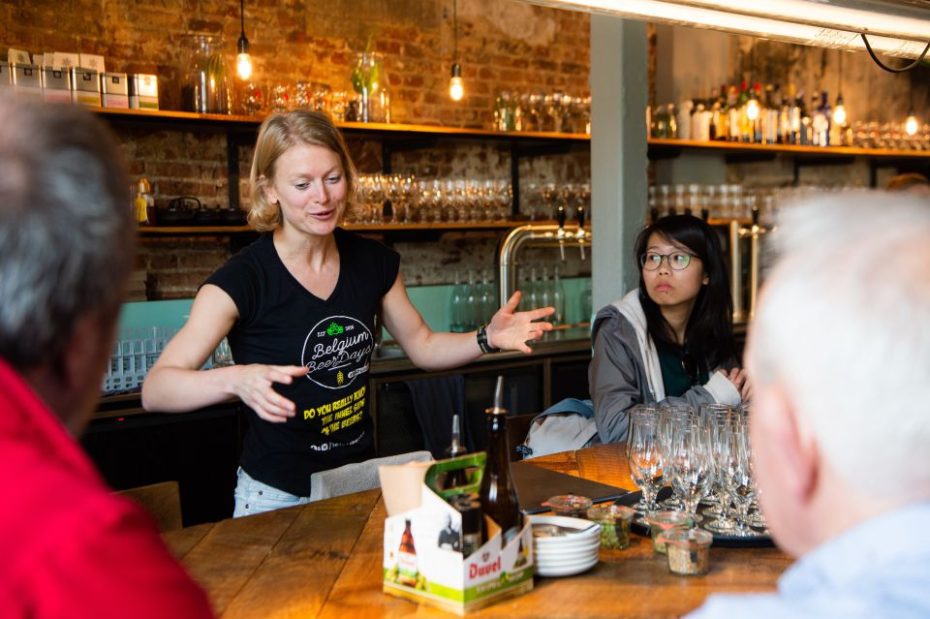
This type of tour lets you dive deep into the fascinating world of beer, exploring its brewing process, history, and the varieties based on fermentation, among other factors.
For instance, you’ll learn to distinguish an IPA from a lager or a Pale Ale. And just like chocolate tours, you can sample several types of beer at the end.
This tour is recommended for adults traveling solo, in groups of friends, or in couples. While Belgian beer is ideal for cooling off during the summer, it is enjoyable all year round.
12. Take a walk around Patershol
Patershol is a charming neighborhood located near the Gravensteen Castle.
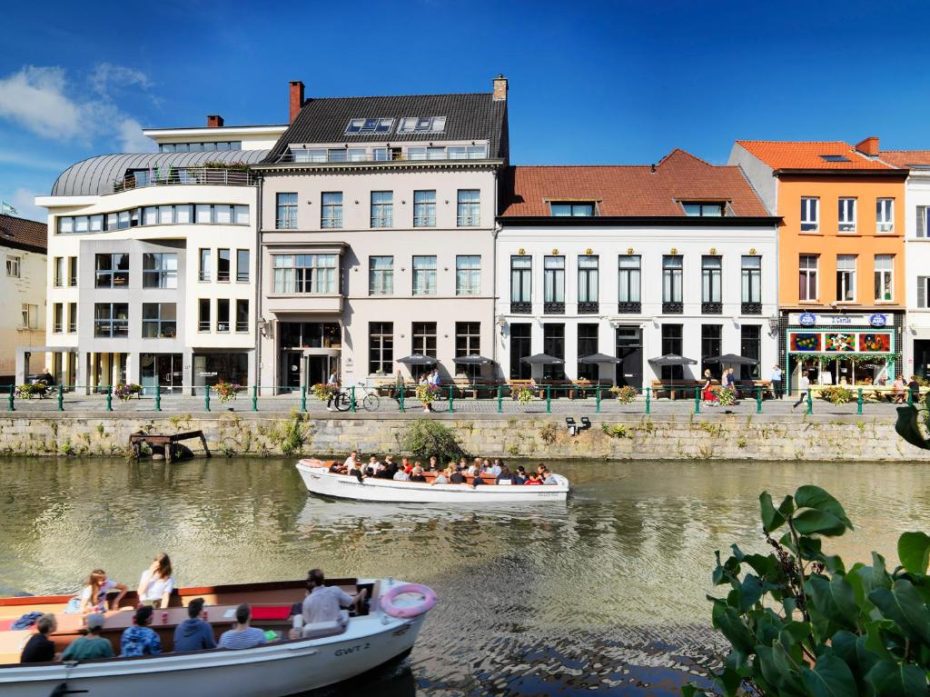
Also known as the “weavers’ neighborhood,” the craft of most residents in this area of the city during the 17th century, Patershol has transformed from a humble zone into one of the trendiest corners in Ghent.
Patershol features medieval architecture, narrow alleys, and cobblestone streets alongside cozy cafes, restaurants, bars, and Belgian designer boutiques. Therefore, it’s also one of the top neighborhoods to stay in Ghent.
- Address: Patershol, 9000
- Opening times: 24 h
- Recommended nearby hotel: Nonam Boutique Hotel
13. Immerse Yourself in Ghent’s History at the MIAT
The MIAT, or the Museum of Industry, Work, and Textiles in Ghent, features an exhibition where you can discover the history of the city’s major industries.
Textiles have been a part of Ghent’s industrial fabric (pun intended) since the Middle Ages. In the museum’s collection, you will learn how textiles were produced from cultivation and how this tradition has evolved over the years.
The MIAT collection boasts over 30,000 objects, including machinery that has been operational since the museum’s opening in 1977.
The Museum of Industry, Work, and Textiles’ headquarters is located in a former cotton mill northeast of downtown Ghent.
- Address: Minnemeers 10, 9000
- Opening times: Mon, Tue, Thu and Fri 9:00 a.m. – 5:00 p.m., Sat. and Sun. 10:00 a.m. – 6:00 p.m., Wed closed
- Fares: €
- Recommended nearby hotel: Ghent River Hotel
14. Visiting the Museum of Fine Arts in Ghent
The Museum of Fine Arts in Ghent, or Museum voor Schone Kunsten (MSK), has a history spanning over 200 years, making it the oldest museum in Belgium.
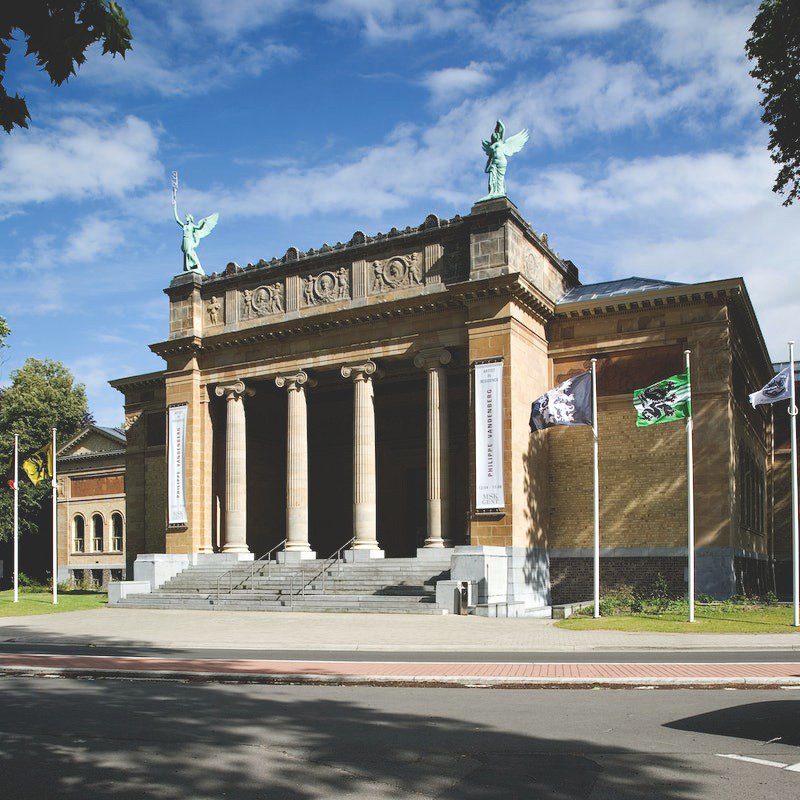
This is the most important museum in Ghent, with works ranging from the fifteenth to the twentieth century, artists such as Auguste Rodin and René Magritte, sculptures and rooms covering different themes.
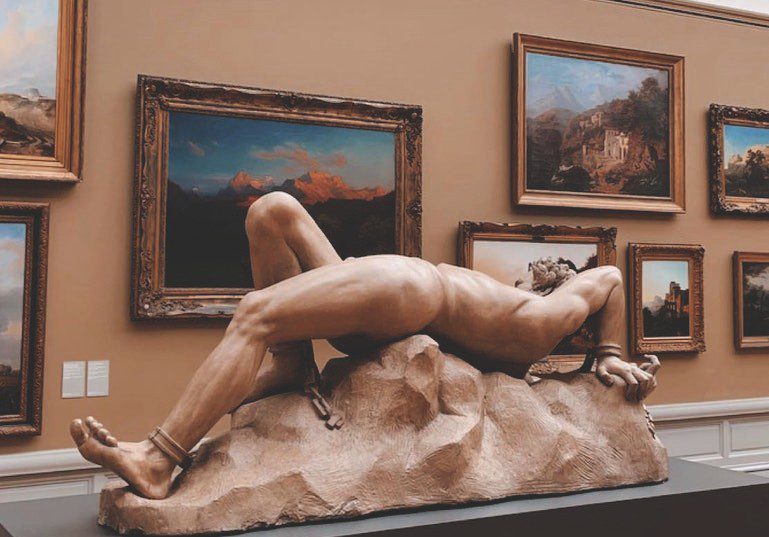
Therefore, the MSK is a must for those interested in art. This museum is located within the Citadelpark, southwest of the center of Ghent.
- Address: Fernand Scribedreef 1, 9000
- Opening times: Tue – Fri 9:30 a.m. – 5:30 p.m., Sat – Sun 10:00 a.m. – 6:00 p.m., Mon closed ss=”iconuseful”> Fares: €€
- Website: www.mskgent.be
- Tickets: Book now
- Recommended nearby hotel: Hotel Astoria Gent
15. Attend the Many Ghent Festivities
If you’re considering visiting Ghent during the summer, it’s a great idea to plan your trip to coincide with the city’s annual festival, an event free of charge.
During this festival, Ghent comes alive with outdoor music, puppet theater festivals, exhibitions, parades, and street performances all over the city.
This event, known as the Intangible Cultural Heritage of Flanders, attracts thousands of tourists yearly. You should book your hotel in advance to ensure you have accommodation and find better rates.
Ghent: More for your trip
Although most of the things we discuss in this guide to Ghent’s top attractions can be booked once you’re there, we recommend that you take the basics covered, especially if you’re traveling in high season.
Transportation
Obviously, the first thing you have to do for a trip in Flanders is to get there. Most tourists arrive in this region by train and the good news is that this Flemish city has excellent rail connections from Brussels, Antwerp, Bruges and even Holland and France.
Being a small city, once there you won’t need a car to get around and, in fact, the historic center is full of narrow streets and canals that make driving or parking a nightmare. The best way to get around Ghent is on foot or by bicycle.
Accommodation
The historic center is undoubtedly the best place to sleep on a trip to Ghent. Staying in the city’s center will make your visit easier as you can easily walk to every corner. We stayed at the Yalo Urban Boutique Hotel Gent, a four-star property with spectacular service and views.
Tours and activities
For a short visit to Ghent you have to organize your time very well. The city has a lot to see.
If you are not sure what to do in Ghent or how to organize your time for a short visit, we recommend you to visit the VisitGent website. It is available in English and has a lot of information and ideas for visiting the city.
See tours, guided tours & excursions in Ghent
For more tips on Ghent, visit our one-week itinerary in Flanders.


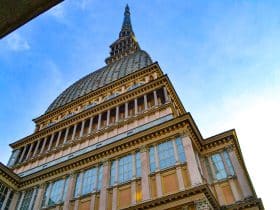
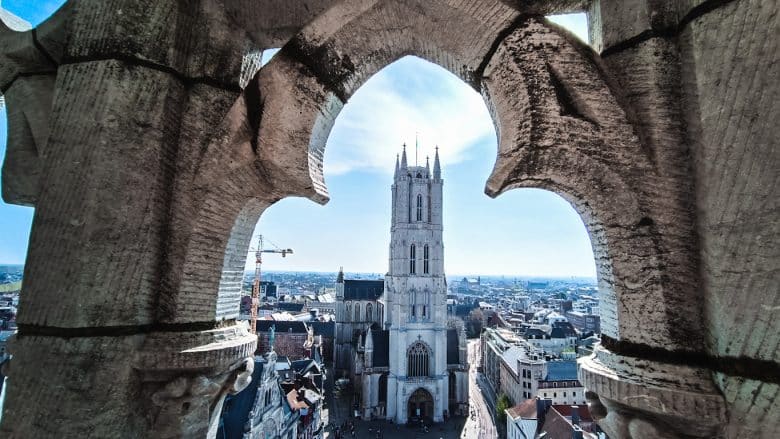
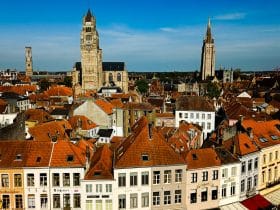
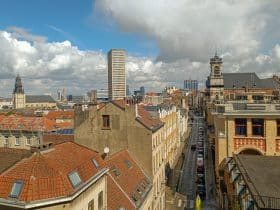
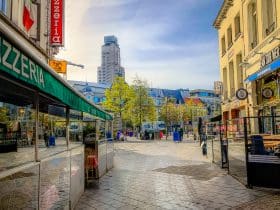
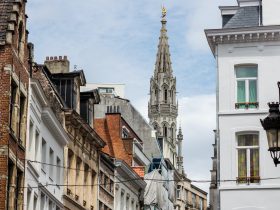

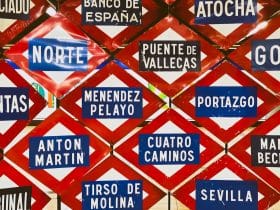
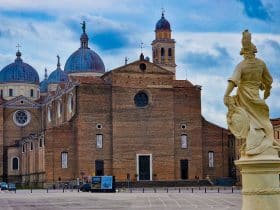

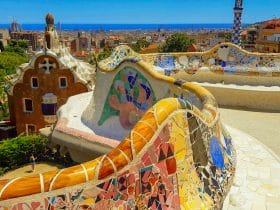
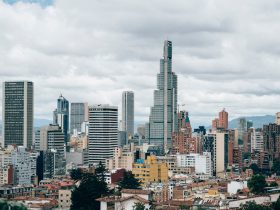
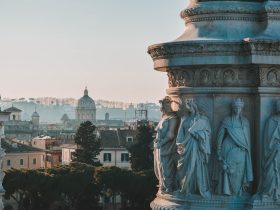
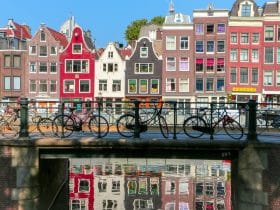
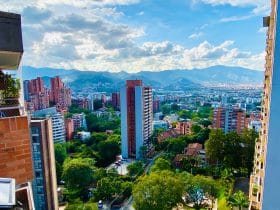

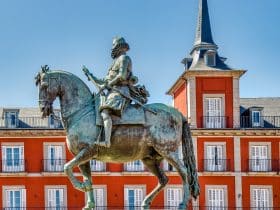
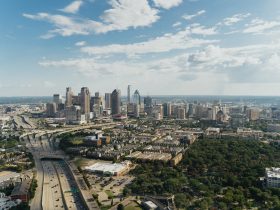
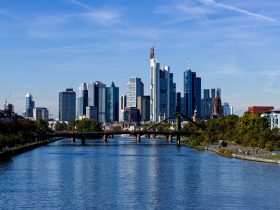
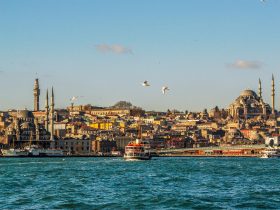


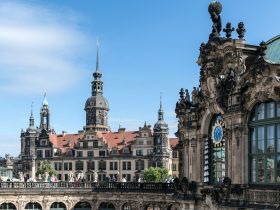
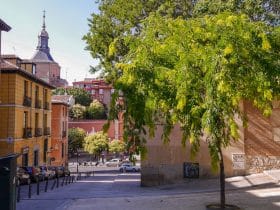

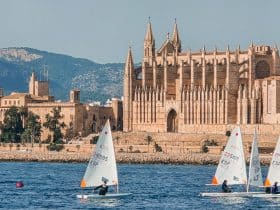
Leave a Reply
View Comments